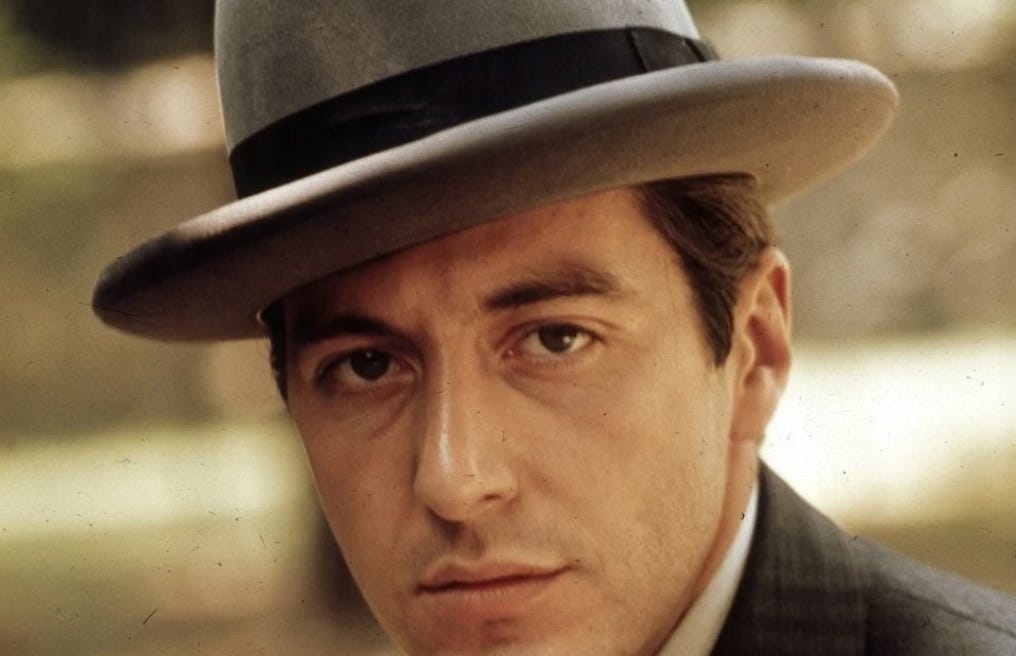The digital world, where many of us spend an increasing amount of our time, takes its name from the binary digits 1 and 0, which are that realm’s subatomic architecture. But digits are named for the Latin for fingers, which remain our most accessible tools for counting. So our fingers, our immediate organs for exploring the tactile reality in which we live, have somehow also defined that imagined, untouchable paradise we once called cyberspace. The internet is many things but, in the original sense of the word, it is absolutely not digital.
A penchant for sarcasm and comic exaggeration means plenty of words slyly, awfully and literally reverse their meanings in our mouths. But something else is happening too. John Yorke defines the most dramatic change possible as the transition from one state to its opposite. Black to white, hate to love, life to death - your narrative doesn’t have to go this far but it cannot go further. Once the angel becomes the devil there’s no more story to tell.
You never have to be this extreme but it will grab the audience’s attention. A romcom about a well matched couple who get on fine is not as naturally compelling as the unexpected blossoming of love between two people who thought they hated each other. The Godfather starts with Michael Corleone on the straight and narrow, which is far more compelling than had he been eager to inherit his family’s criminal empire. In stories, wherever you start, your end will be some sort of opposite. It has to be the noble that fall and the wicked who discover compassion. That’s stories, a law for storytelling is not a law of physics but stories have a power that leeches out of our thoughts and into our reality.
Labour’s clumsy dropping of their pledge to spend billions insulating people’s homes felt cynical. Sure the past 14 years offer plenty of evidence that whilst many voters crave different outcomes, few will risk a different approach; however that the shadow cabinet have sought to become merely the shadow of the cabinet feels like the advertiser’s trick I’ve written about before of selling something specifically as the thing it is not. But the swindle is not always deliberate. Labour’s actions are clearly rooted in an honest belief that you cannot make the world a better place without gaining power, much as you cannot make an omelette by peering through the kitchen window and complaining loudly about the chef. I’m sure in their bones Starmer’s party believe that come whatever passing nuance of policy position, Labour will always be better for the majority of the population, if only because that was the principle upon which it was founded, that’s where it started.
In a story a character becomes their opposite because drama demands change. In real life the transformation often happens when we imagine ourselves to be fixed, stable and unchanging. That we are good, or fair, or kind might be true but it’s a truth that can blind us to the risks of our actions. We become wicked, biased, cruel precisely because we feel ourselves incapable of being those things. A sincere belief in their own basic righteousness is what will enable Labour to gain power and change nothing; or commit war crimes, like last time. Not cynically, but with an excess of certainty. This is a different law of storytelling. Will Storr describes it as the “sacred flaw”, the hopeful self delusion that powers your character to make their worst mistakes. The most dangerous stories are the ones we believe about ourselves.
This is uncomfortable, especially in an age of opinion, when everything becomes a story about who we are, about how right we are. Much as digits have gone from touching to untouchable, so our opinions that start as feelings end up acting as facts, facts that reinforce our righteousness. There are obvious examples of this on the Trumpian right where anything can be true if you assert it violently enough, but this is not just a symptom of the fury of the comments section. Most criminal cases don’t deal with motivation, it’s usually enough that something bad can be proved to have happened. Only when things get really dreadful do we like judges to rule on motivation, to condemn the story of why as much as the story of what; but, like passing a law to decree that a country is a safe haven for refugees, these are opinions masquerading as facts. Or not masquerading, somehow become, not being other than they seem but like Iago, who says “I am not what I am”. A law that is an opinion, that rules the unknowable known, is a fact that is not a fact.
Why ask if we are witnesses to genocide? Surely before judging this we must explain how anyone might drop bombs on civilians, on children, with kindness. Why decry as terrorism what we all know to be murder, rape and kidnapping, are these not enough? The battle to attach these opinions to horrific facts is the battle of condemnation. But condemnation is a comfort. It is a story we believe about ourselves that puts safe horrified distance between crimes we say we couldn’t ever commit. Condemning terrorism is what allows governments to kill civilians, condemning war crimes is what allows protestors to murder strangers. Rather than condemn the atrocities in Gaza, in Ukraine, in Tigray from some imagined high ground, we in Britain should view them as Cromwell in Ireland, O’Dwyer in Amritsar, as Erskine in Kenya. Condemn not as a judge but as a convict, not with horror but knowledge of our own shared capability.
This is the hideous truth the storytelling teaches. The story is the journey from one place to its opposite but that means it must always contain both states, as must any story we tell about ourselves. When we believe something, when we have an opinion, we bury the opposite inside us. We all can become what we think we are not, what we do not wish to be. The blissful delusion of being incapable of an action silently brings it closer. “I could never cheat” makes it ok to keep flirting. Falling in love is to create the pain of loss. There is no hatred, no racism, that does not contain an erotic obsession with the hated group. When you invent the motion of the car you invent the stillness after the car crash. Be careful what you proclaim. Be careful what you denounce. Steam and ice are opposites but both are just ways of being water.
I am super pumped to say that a new short film I directed with Chris will premiere at BFI Flare next month. WOLF, written by Laura McGrady and produced by Barry Castagnola stars Alexa Davis and Terique Jarrett and is a beautiful little slice of platonic love. The screening sold out in an hour and a half but more tickets will be released on the 7th March.
I’m sad to say I’m having to reschedule my seminar “HOW TO HAVE AN IDEA” because I’m currently too ill to make sense whilst standing. Exploring when an idea becomes a story and how to have more of both this three hour session acts as a taster for anyone interested in my 9 week storytelling and screenwriting course, I will not be shy about when it’s happening next…





